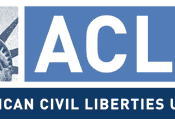The Controversy Around Banning Books
Essay written by andymanninja
The subject of censorship is a very controversial one, especially the banning of books. Many people believe they must protect themselves and others from the "evils" of many classic books and works of art because they can be deemed "indecent" in one way or another. Many believe that this is absurd and censorship in its current form is a violation of our First Amendment right to free speech. Personally, I align myself with the latter, however I do feel there are occasions where censorship is justifiable. The censorship of books is a division of censorship that, apart from Internet censorship, receives the most publicity. Banning books is the most popular form of such censorship. Many banned books are literary classics, such as The Catcher in the Rye, by J.D. Salinger, which was listed as the number 6 most challenged or banned book in a list compiled by the American Civil Liberties Union in 1997.
This book has been banned from school libraries all over the country because of the main character's teenage angst, which many feel is too graphic for teenagers, and its profanity. Profanity, whether it be frequent or a rare occurrence, is a characteristic of many literary classics, as is the use of racial epithets.
In the book Huckleberry Finn by Mark Twain (ranking number 2 on the list), an epithet is use many times over to describe the people of color in the book. Now since the book was published in 1885 and such language was common at the time, I do not believe that banning such a book is necessary. An excuse commonly used by advocates of banning books that use graphic language or racial epithets is that they do not want children exposed to it. It...



For more info
for more info and a complete list of last year's banned/challanged books. you can go to ALA's (american library asso.) site.
http://www.ala.org/ala/oif/bannedbooksweek/ challengedbanned/challengedbanned.htm
0 out of 0 people found this comment useful.